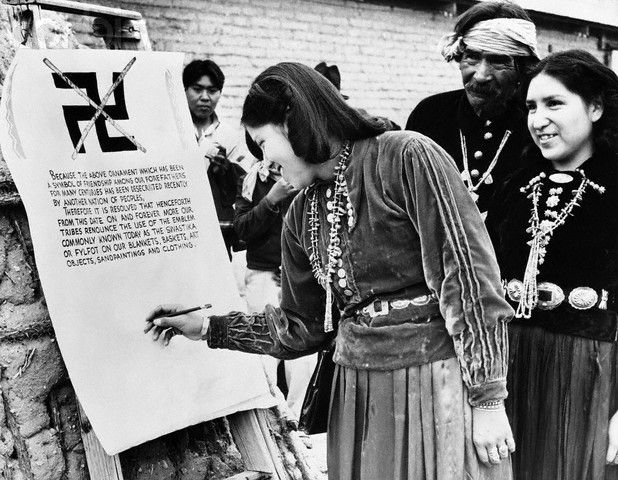One Man’s Flag…
Welcome to the age of symbols…

In this age of individual expression all one has to do is to look around any public area. Shirts, hats, sneakers, jewelry, and scarves, etc. with all kinds of symbols and emblems adorn many a wearer. The wearing of symbols or brands has become more than just a particular choice of designer. The emblems of sports teams, the rock band tee, or the favorite football team gives the world a quick glance into who the wearer is without a word. I have my own share of representative items such as crazy cat shirts, Red Sox shirts, Darth Vadar shirts, etc.… It was during a conversation with a student, Sihun Kim about symbols, shirts, and history of all things that the following subject came up. This student mentioned that he had recently seen another student wearing a shirt with a symbol that was very offensive to Koreans because of the history involved. It was a shirt with a rising sun flag, and the student patiently explained how he felt when he saw someone wearing it. It was something I would have never known about if I had not had this discussion. Because of my love of Asian languages and symbols, my guess is that I might have bought the same shirt myself without realizing what it meant. I am grateful to my student for giving me new information.
I was taught in school the following saying – “History is written by the victors.” By Winston S. Churchill.
I was taught that this saying means that the record of history is from the perspective of the conquerors and therefore a biased record of events. Often the history we read about as children in the U.S. has been watered down to be age appropriate, but often to the point of inaccuracy. Add to this, the fact that part of the multicultural and multiethnic system in the U.S. allows for the celebration of historical holidays and the wearing or displaying of symbols, which are not always held in high esteem by all groups. Because we allow religious freedom and freedom of speech and expression, it can be difficult to honor those tenets without offending someone.
Part of our celebration of historical events is to decorate with symbols, flags, and emblems. We sometimes don’t understand the weight of what we display, wear, or represent. There is also the question of how far back in history one should go to maintain sensitivity. Considering the number of atrocities groups of people have committed against each other throughout history, it would be difficult to find many groups that have not at one point harmed or offended others.
The following is a more specific example. For a few years I lived in the Pacific Northwest in communities with different Native American tribes. The point of view that they expressed to me about the U.S. celebration of Thanksgiving, Columbus Day, and the use of Indian mascots and team names was clearly one of seeing the people who participate in these events and utilize these symbols/emblems as callous, offensive, and lacking true understanding of cultural sensitivity. This is in stark contrast with many who see these occasions as cause for cheer and celebration. In my biased opinion I find that while human beings can display the utmost in kindness at the most unexpected of times, we also don’t always see past our own noses. We often expect others to be able to joke about their culture or religion while not being willing to do so with our own. When some young college lad is doing cartwheels and crazy dances at a game in ceremonial Native American clothes, no one seems to have a problem. Just imagine how many people would complain if the same thing were done at a Red Sox game with a college student dressed as a leader from another religion. My bet is that there would be complaints.
Here is another example. The swastika symbol is actually an old symbol used by many people in the world. The Navajo and some other Southwestern tribes, who commonly used this symbol, renounced its use after the Nazis decided to use it and after the Holocaust. Some people in India still use this symbol and refuse to let the Nazi’s actions ruin the sanctity of an ancient symbol.
There are certain symbols, which I shy away from because I know what they represent to others and I feel that my using them acts as indirect support. It is not for me to say whether or not others should use those symbols or whether or not my not using a particular symbol makes a difference in support. It is merely a personal choice. Thanks to Sihun Kim, I now know that there is one symbol I will not be wearing or decorating my home with in the future.
By Katja Davidoff
Photo credits
s-media-cache-ak0.pinimg.com/736x/16/85/dc/1685dcc9bb3f2a007e194ee0790ceb60.jpg